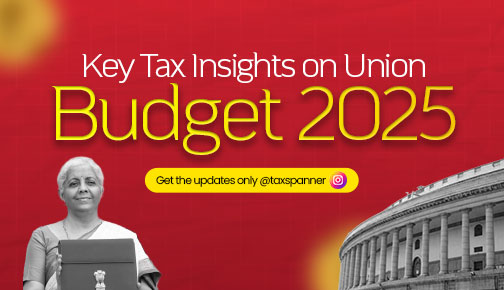UPI Payment Charges: Guide to New Rules, Limits, and Fees
The Unified Payment Interface (UPI) has revolutionized the way transactions are conducted in India. Developed by the National Payments Corporation of India (NPCI), UPI allows individuals to make real-time bank-to-bank transfers, enabling seamless payments for everything from shopping to utility bills. As the most preferred mode of payment, UPI offers a user-friendly experience, but it is essential to understand the transaction charges, surcharges, and new guidelines associated with it.
What is PPI in UPI?
Prepaid Payment Instruments (PPIs) are digital wallets and prepaid instruments that enable users to store money and make real-time payments online. Common examples of PPIs in UPI include digital wallets like Paytm, PhonePe, Amazon Pay, and SODEXO vouchers. These wallets can be used to make payments by scanning UPI QR codes, making them convenient for users to complete transactions instantly.
When payments are made through these wallets, an interchange fee is levied. This fee is charged to the merchant who accepts the payment through these wallets, and it helps cover the costs of processing, accepting, and authorizing transactions.
UPI Transaction Charges and Surcharge on UPI Payment
As of 2024, a new set of guidelines has been introduced by NPCI, detailing UPI transaction charges and surcharge on UPI payments. An interchange fee of up to 1.1% applies to UPI transactions made through PPIs (such as wallets) when the payment exceeds Rs. 2000. This fee does not affect the customer; instead, it is levied on the merchant.
For instance, a merchant using a PhonePe QR code to accept payments will have to pay the interchange fee to PhonePe if the transaction amount exceeds Rs. 2000. The fee varies depending on the type of transaction, such as 0.5% for fuel payments or 1% for insurance, government, and railway payments.
These guidelines, which include UPI surcharge and UPI payment surcharge, will primarily impact merchants who receive payments through PPIs. Customers making UPI payments for personal transactions, such as transferring money to family and friends, will not be subject to any charges.
UPI Transfer Limit
The NPCI has set a daily UPI transfer limit of Rs. 1 lakh for most transactions. However, there are exceptions to this limit. For transactions related to capital markets, insurance, and foreign inward remittances, the UPI transfer limit is increased to Rs. 2 lakh.
Special UPI Payment Charges for Certain Transactions
There are specific categories of UPI payments where higher transfer limits apply:
- Tax Payments
- Payments to Educational Institutions and Hospitals
- Payments to IPOs and RBI Retail Direct Schemes
For these payments, the UPI transfer limit can go up to Rs. 5 lakh. Importantly, the new guidelines focus on the UPI charges over Rs. 2000, with interchange fees coming into play only when PPIs are involved.
Will Customers Have to Pay UPI Payment Charges?
No, customers will not have to pay any extra fees when making personal payments using UPI, regardless of the amount. UPI payments made for Peer-to-Peer (P2P) and Peer-to-Merchant (P2M) transactions are free for customers. This means individuals transferring money to friends or making small purchases at merchants will not incur additional charges.
The charge on UPI transaction is primarily levied on merchants who accept payments using wallets or digital wallets linked to PPIs. Therefore, UPI merchant charges only apply to merchant transactions, and customers will not be affected by them.
New NPCI Guidelines and Interchange Fees
Under the latest UPI new guidelines, the surcharge for transactions exceeding Rs. 2000 is aimed at improving the efficiency of digital payments by regulating the financial aspect for merchants. The NPCI charges for UPI are designed to balance the ecosystem and ensure smooth functioning, particularly for wallet-based payments.
For example, if you reload your PhonePe wallet with more than Rs. 2000, PhonePe will pay a wallet-loading service charge of 0.15% to your bank. This ensures that you are not directly impacted by any hidden charges while using your wallet to make UPI payments.
What Does This Mean for Merchants?
Merchants who accept UPI payments through wallets (such as Paytm, PhonePe, Amazon Pay, etc.) will bear the UPI surcharge. These charges apply only to payments exceeding Rs. 2000. Smaller merchants may not feel the pinch of this surcharge unless they are processing large transactions. In fact, many small shopkeepers and medium-sized businesses will likely absorb the surcharge on UPI instead of passing it onto customers.
What is the Future of UPI Payment Charges?
With the implementation of 1 April UPI charges, transactions involving PPIs will see a change in the way payments are processed, and fees are applied. These changes will primarily affect merchants, but customers will still enjoy free and easy transfers for personal UPI transactions. The surcharge on UPI payments and the NPCI’s guidelines are an effort to enhance transparency and improve payment systems while keeping the costs low for end-users.
In conclusion, to summarize, UPI payments are still free for personal transactions, and UPI transaction charges are applicable primarily for merchant transactions over Rs. 2000 using PPIs. Customers will not have to worry about any additional UPI payment surcharge, as the responsibility for paying the fee rests with merchants. As UPI continues to grow as the preferred mode of payment in India, understanding the surcharge on UPI, UPI charges from 1st April, and the tax on UPI transaction will help users make informed decisions about their payments.
Whether you're a merchant or an individual, it's important to stay updated on the latest changes in UPI transaction charges to avoid surprises.
Explore TaxSpanner's wide range of calculators for your tax planning and calculations!
View Tools & Calculators





